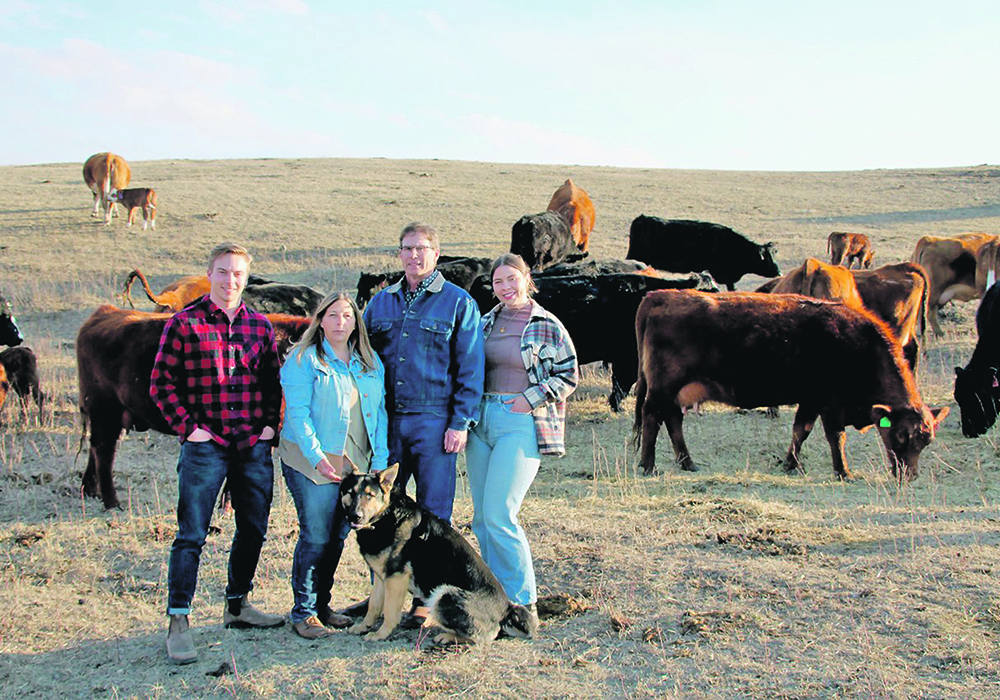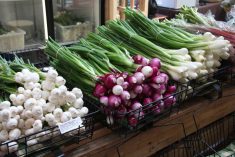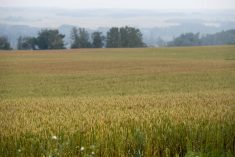Family hasn’t had formal meetings about an eventual transition to the next generation, but the discussions have begun
The journey to farm transition is long and bumpy with plenty of blind corners and dead ends, but Lowell Nelson and his family have started down the road without a map and are not sure where it will take them.
“We’re not exactly sure when or what is going to happen. We have slowly been having those conversations and taking steps in that direction,” said Nelson, a recent University of Alberta agriculture graduate, who hopes to eventually return to his Morrin, Alta., family farm.
“It is at the early talking stage. We have not had super formal meetings, but we have had dinner conversations about what my parents are expecting and when they want to be done, or when they don’t want to be running the farm by themselves anymore.”
Read Also

Accurate accounting, inventory records are important
Maintaining detailed accounting and inventory records is not just a best practice; it’s a critical component of financial health, operational efficiency and compliance with programs like AgriStability.
Now, Nelson is living in Bassano and works at Bow Valley Genetics. On the weekends and holidays, he drives an hour and a half back to the central Alberta farm to help with haying, seeding or calving his own herd of Fleckvieh cows, as well as the family’s commercial cattle herd.
“In the busy seasons I try to go home as much as I can and help out.”
But at 25 with a full-time job, friends and other activities, Nelson knows he is not ready to move home yet and become a full-time farmer.
“In the summers I go do quite a few things on the weekend. My parents don’t mind too much. I am still quite young and want to explore and travel and see my friends. Back home a lot of my friends have moved away and then I went to university and made new friends from all over the country. I don’t want to go back home too soon and then wish I was somewhere else all the time.”
While taking a gap year between high school and university Nelson confirmed his desire to farm. When he was younger Nelson gravitated to the livestock part of the mixed farm, was in 4-H and at 16 started his own full-blood Fleckvieh herd with four cows. It is now up to 25 to 30, depending on the year.
“This is my gateway of getting into the farm and adding more value.”
For parents Melanie and Tracy Nelson, transitioning the 112-year-old family farm to the next generation is always present in their thoughts.
“We wrote semi-retired and that didn’t quite feel right. We would just like to transition,” said Tracy, who believes patience is the biggest quality required now for a good transition, while Lowell and their daughter, Quinn, decide their futures.
Melanie agreed: “I think it is patience. I think we are ready to transition but the kids are not quite ready for a whole transition yet.”
Returning to the family farm isn’t as easy as moving back and taking over from the present owners. Twenty-two years ago, Mel and Tracy bought five quarters of land from her brother and agreed to buy the rest of the farm from her parents.
The two families work together and the land payments to her parents end in six years.
“We have been working together with them. We ran the farm and they’ve been getting income from the farm,” she said.
While Tracy and Melanie don’t have the farm transition nailed down, they know it will not involve their children taking out a massive farm loan and buying the land from them.
“We are not planning on selling our farm to the kids. We are planning on transitioning it to the kids. If each generation has to pay off the farm every time, you never get ahead. We are wanting to add value to the farm and grow it,” she said.
“Hopefully, that will help the farm grow instead of keeping going back to the banker and paying for the same land again and again,” said Tracy.
Lowell believes slowly switching the herd to fullblood cattle from commercial cattle will help add value to the cow herd. Now, some of the commercial cows are finished and sold privately to individuals as another way to increase the value of each animal.
“We always said if you come back, you can’t just do what we’re doing. We’re more commodity producers. You have to add value to the farm,” said Tracy.
Figuring out the details of how Lowell and possibly his sister, Quinn, now at university, can take over the farm and ensure everyone has a living is still to be decided.
“We are just planning what our needs are. It will be more like a rent. We’ll get our living allowance and then they don’t have to pay for the farm again,” said Tracy.
Both Lowell and his parents believe it will be at least five years before there is an official transition of management and ownership.
“Within five years, I could see myself being part-time and pretty quickly after that working towards full-time and taking some of the reins,’’ said Lowell.
It is a timeline that fits Melanie and Tracy too. Tracy still wants to play an active role on the farm, but without the daily decision-making headaches. By that time the couple would like to do more travelling.
“Nothing is in hard copy yet. It is waiting to see what the kids do. They have ideas,” said Tracy.















